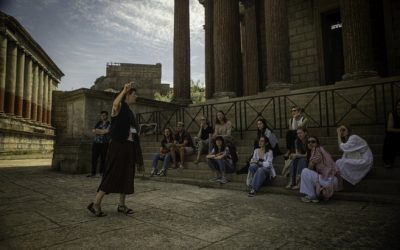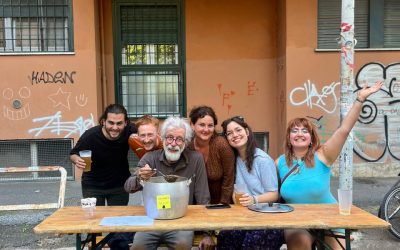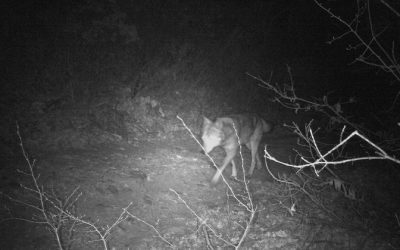Art and culture
The subtle art of being a “decent” camp leader
Workcamp
Written by Nina Mialo from Ukraine
This question: how to be a “good” camp leader I was asking myself many times while preparing for the international workcamp in August. That supposed to be my second time as a camp coordinator and forth – participating in the project like that. For sure, I was more experienced than my co-teamer, but it didn’t give any confidence at all. Hence, I was excited and nervous at the same time. But there was no way back and now I don’t regret even for a moment that I joined this particular camp!
The working tasks
The workcamp took place in the Artefact Powerpark on the north of Germany, if to be precise in Glücksburg near Flensburg. The major working part included a pretty wide range of maintenance activities, starting form gardening & weeding, carrying soil to widen the way to the pond and later on creating there the stairs & platform for the visitors or lifting something heave altogether (such as wooden beam on the picture).
Every day I was trying to be involved fully in each activity and work at the same level as other participants while caring about others and checking if everything works well. Thus, at some point, my body told me that I should have a rest and take care of myself too. Probably, I was trying to be a nice example for the others and motivate them even more (as at some points it was hard).
Advice: to be a good camp leader you should take an active part in the working duties, but at the same time delegate and ask for help when needed. To carry everything on your shoulders can be a losing strategy.
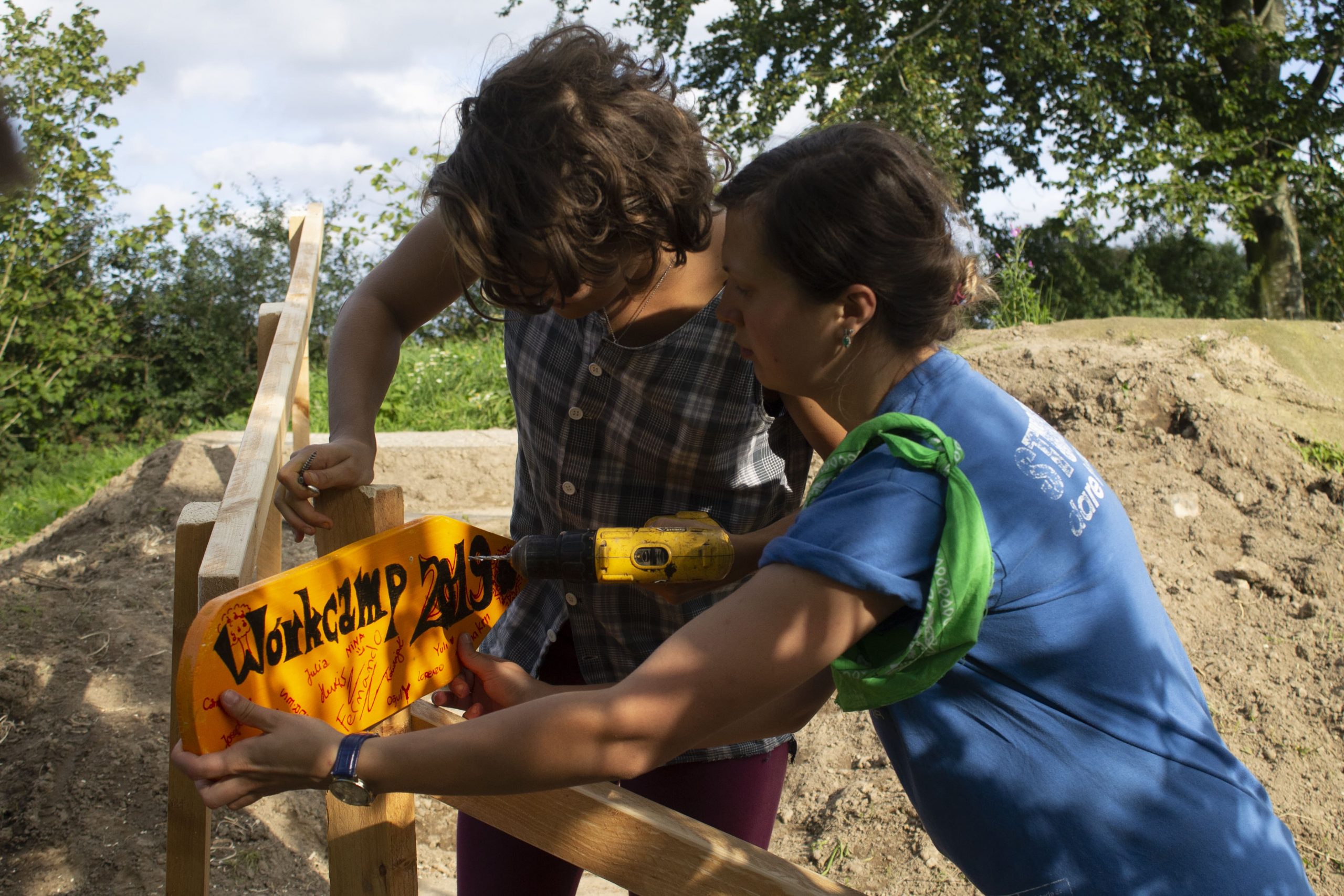
Study parts
During those 2 weeks, we had different study parts, taking into consideration the interests and contributions of the participants. There were workshops about sustainability (e.g. cloths industry), renewable energy in various countries, veganism, infotainment power park rally. I did a study part about SCI and its values in a form of memory game with pictures showing important dates in the SCI history (as depicted in the photo).
However, even more, I was waiting to make my ‘study part’ about improve theatre playing, which we finally did on one of the last evenings. In general, the training included games and exercises for the trust and feeling yourself in the group and at the end, we played a bit of real improve theatre. At first, some participants were pretty concerned about it while the others were interested and awaiting. Nevertheless, we made it successfully but needed to postpone for one day, because of the non-appropriate time and mood. I was content about the implementation and the outcome of the workshop.
Advice: it is correct to offer your study parts, sometimes even a bit different than the topic of the camp to have a small change. But it is extremely important to appreciate and take into account the wishes of the group, their general state, and readiness to be involved. Never take anything personally if it is not going as planned because normally it is almost not like this, thus flexibility is required!
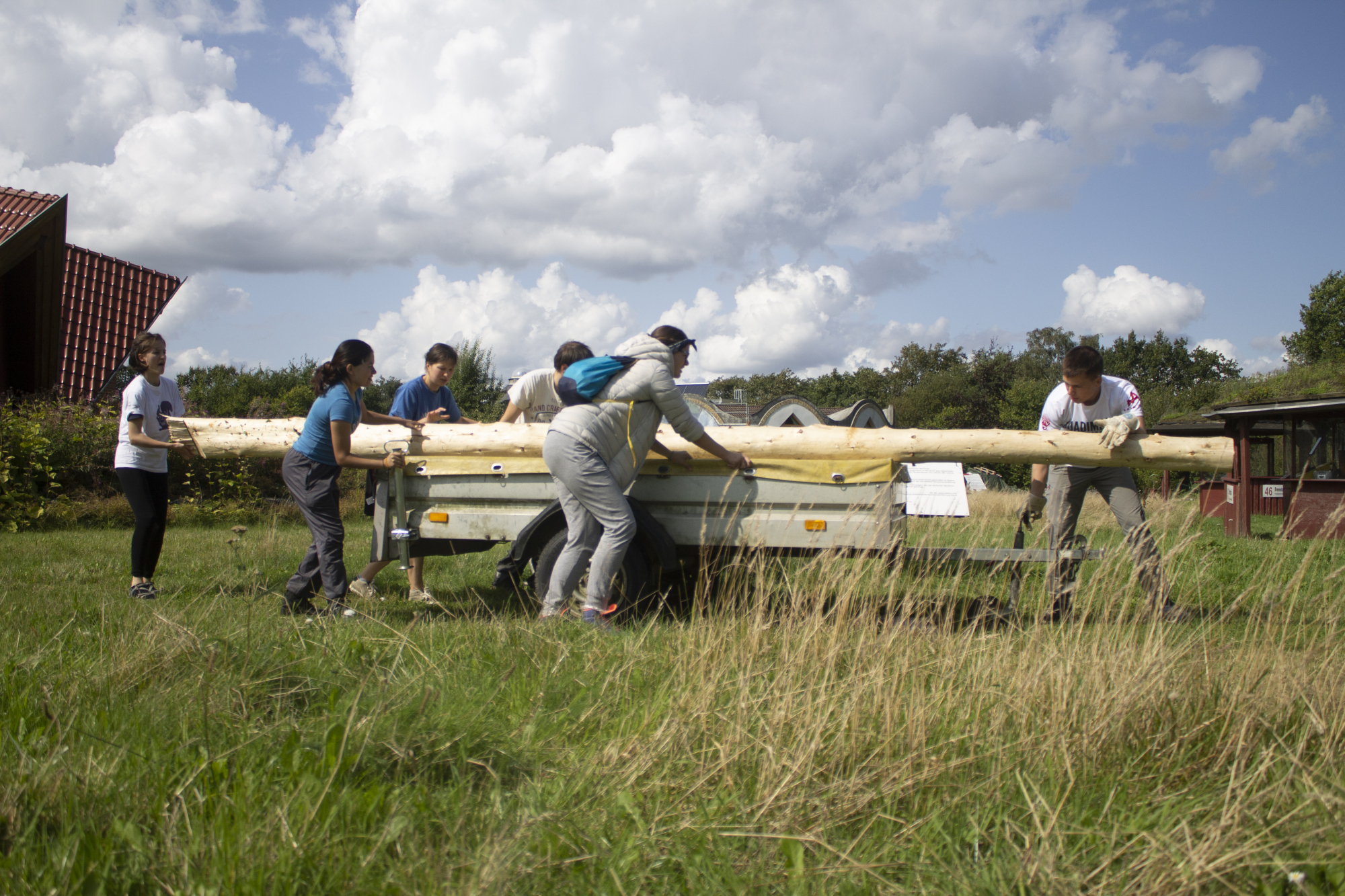
Free time
Of course, except for working tasks and intensive study parts, the group has some free time activities, which should be initiated by the volunteers as well. In my case, a lot of hints were given by the project partner who was aware of the local attractions. Thus, we were walking (normally about 30/40 minutes) several times to the different beaches in the surrounding area and doing picnics with tortilla or pizza there. The most memorable walk was to the northern part of the peninsula with captivating landscapes, where some brave people were even swimming!
One day, we went to Flensburg by ferry and made little city tour there, taking pictures in a funny “working” positions. I am not on the picture as I am taking it, and honestly at that very moment felt a bit separated from the group. Because of that, I left the group for a while in order not to be responsible for the whole 24 hours and recharge a bit the batteries. So we took a 15 km walk (with 1 participant) back to campsite along the seashore with stunning views and sunset. And when we arrived it was really pleased that the others were worried and thinking about us.
Advice: try to find a balance between been with the group all the time and let go, not feel responsible during the free time as well. Give more time for people to relax, offer and make changes when it doesn’t work with the weather or other unexpected conditions. Furthermore, react normally when the group is not all the time together and some smaller groups are created.
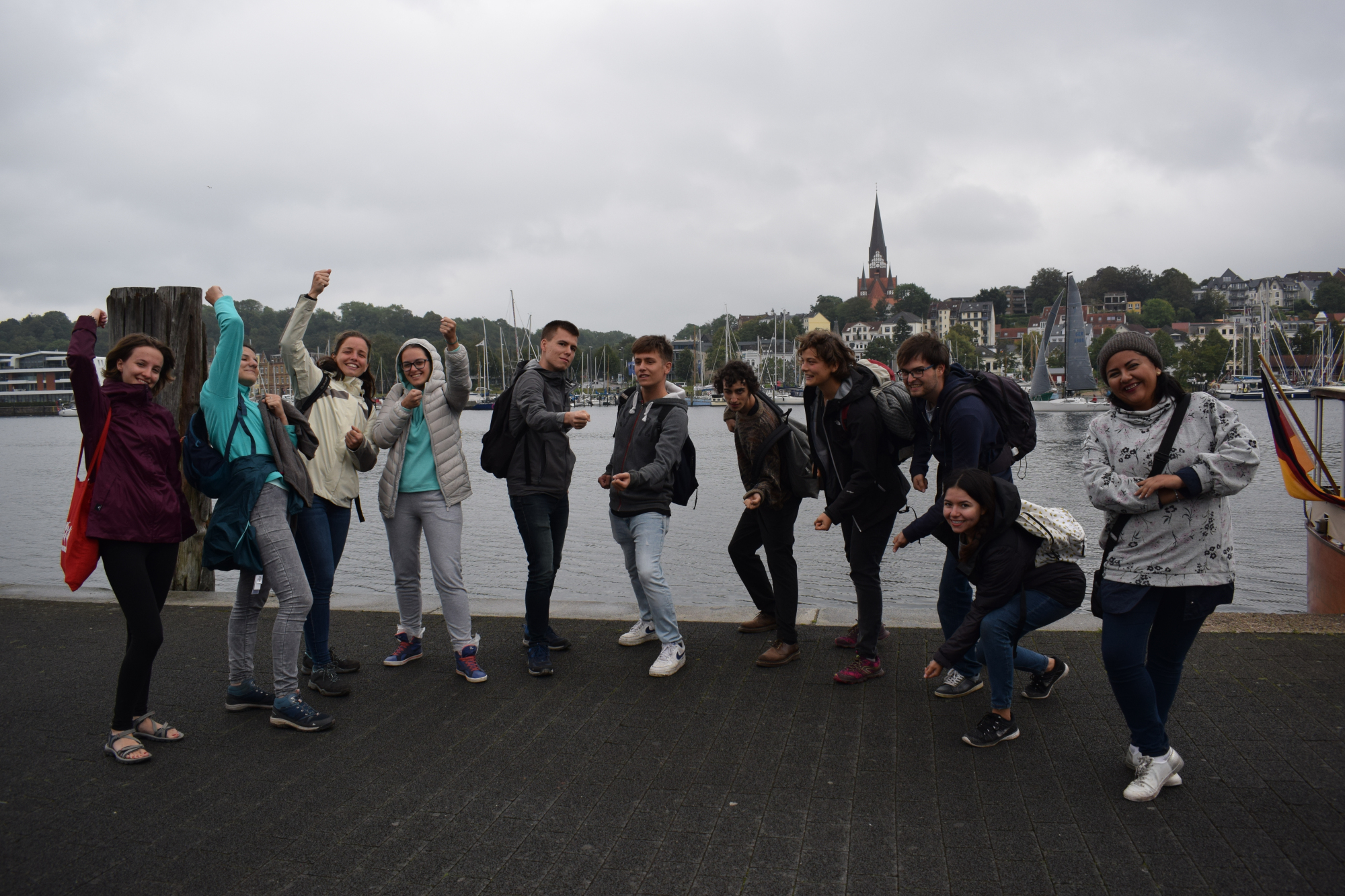
Cooperation with co-teamer, project partner, SCI-office
In previous sections, I covered mainly the relations with the group, however equally important to mention is the communication and cooperation with the other involved parts, such as project partner, SCI office, and your co-teamer. That was a large topic for me from the very beginning, when we met with my co-teamer during the project visit in July. I realized that we are completely unlike and having dissimilar approach and view on life. Thus, I even asked for help from the SCI office about how to cope with the anxiety that I had. At the beginning of the camp that was quite challenging for me, though slowly when we were openly discussing and reflecting on all situations, it went much better.
In the end, I can admit that I am really satisfied with our tandem as we brought to the camp various topics, discussions, and knowledge. She was more focused and competent in the topic of renewable energy and sustainable living. Hence, she gave us great insight into the topic and at the same time I was more interested in the methods, games for the creating group dynamic. I would say we learned a lot from each other and took some best practices for the future.
Cooperation with project partner went generally properly. The project partner was a thoughtful, caring and knowledgeable person. Notwithstanding, there were some situations when participants were disappointed and also a bit upset with the weather, type of work and mostly with the living conditions we stayed in! As a result, some mediation between those two parts were necessitated.
Advice: always talk with your co-teamer and give regular feedback to each other about the debatable circumstances. It is completely fine to be different and bring something distinct to the group. The best idea to do is to appreciate and respect each other! Regarding project partner, it is also a complex and delicate issue to be in between participants and try to solve the conflicts or disagreements before they got worse.
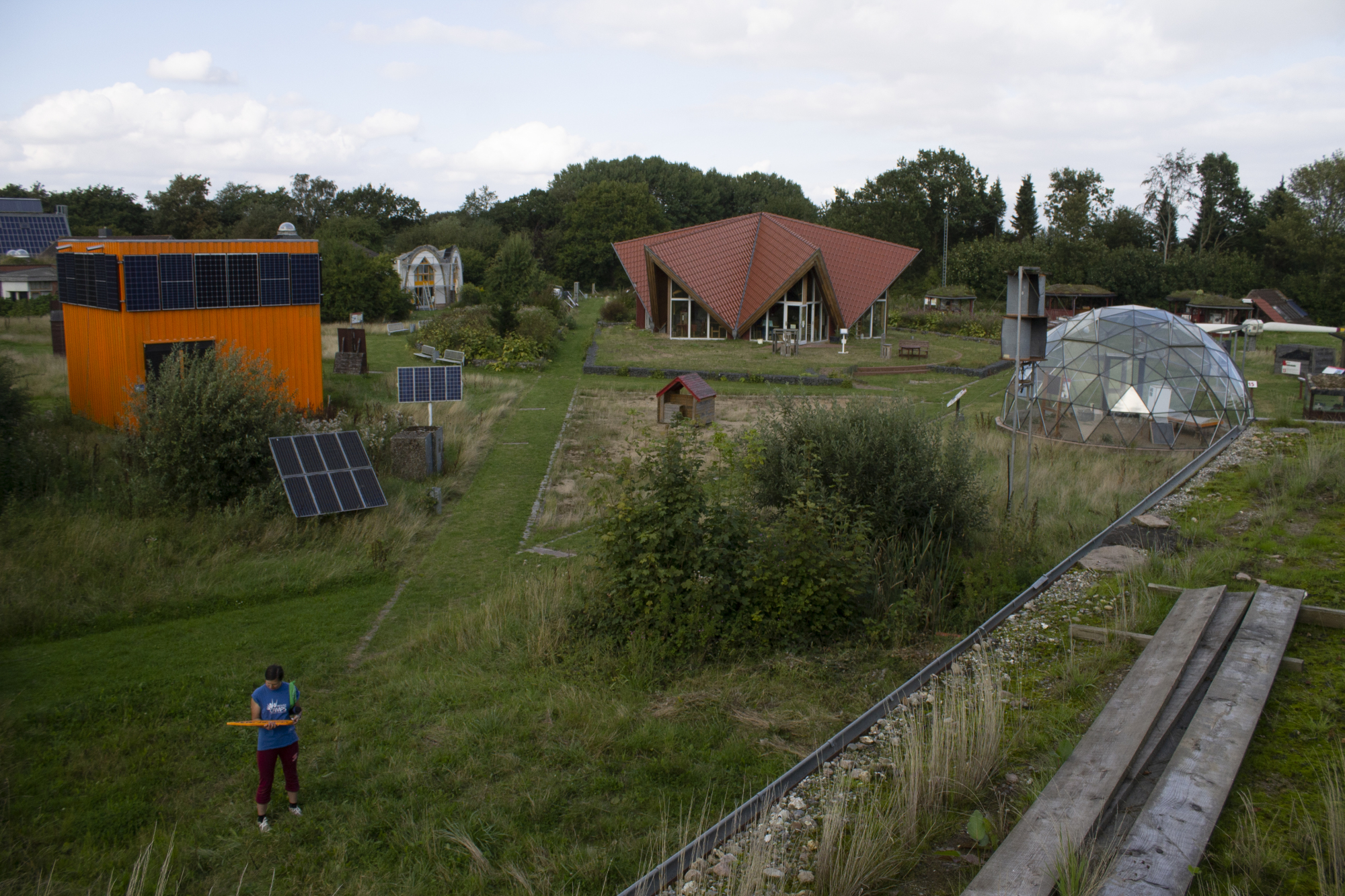
Edifying lesson for the future
When reflecting on the whole experience, I felt that my role was something between a crisis manager and coordinator. At the very start it was certainly stressful, as I worried about the arrival of some participants (yes, it may be they miss their flights to the other part of the world!), also taking a lot of care about everything, trying to integrate everyone, distributing work and checking if everything is working fully and the volunteers are satisfied.
But then slowly delegating tasks to others and asking for help made it less exhausting. Nevertheless, I was still trying to be part of the group, their friend and additionally a person who can solve different issues and problems.
Advice for myself: I assume that I shouldn’t worry so much about everything. However, I am a person who likes to take care of others and make their stay as pleasant as possible. Besides, I am very demanding towards myself and the others as well. Thus, at the midterm evaluation, I realized that only I had more negative thoughts about different situations than the total group. At the same time, participants understood my message and were trying to be engaged and helpful, especially during the second week (Secret friend game could make some magic). I am happy that nobody told during the evaluation round that I was like a mommy as I hate this role! – Thus, I just hope they learned and took a lot from me because I learned a lot from them!
To sum, I would like to say that the camp leader has a special position: you need to be understanding, flexible, friendly and strict at some moments, be with and over the group. Significant advantages and life experience that workcamp brings to you are priceless!
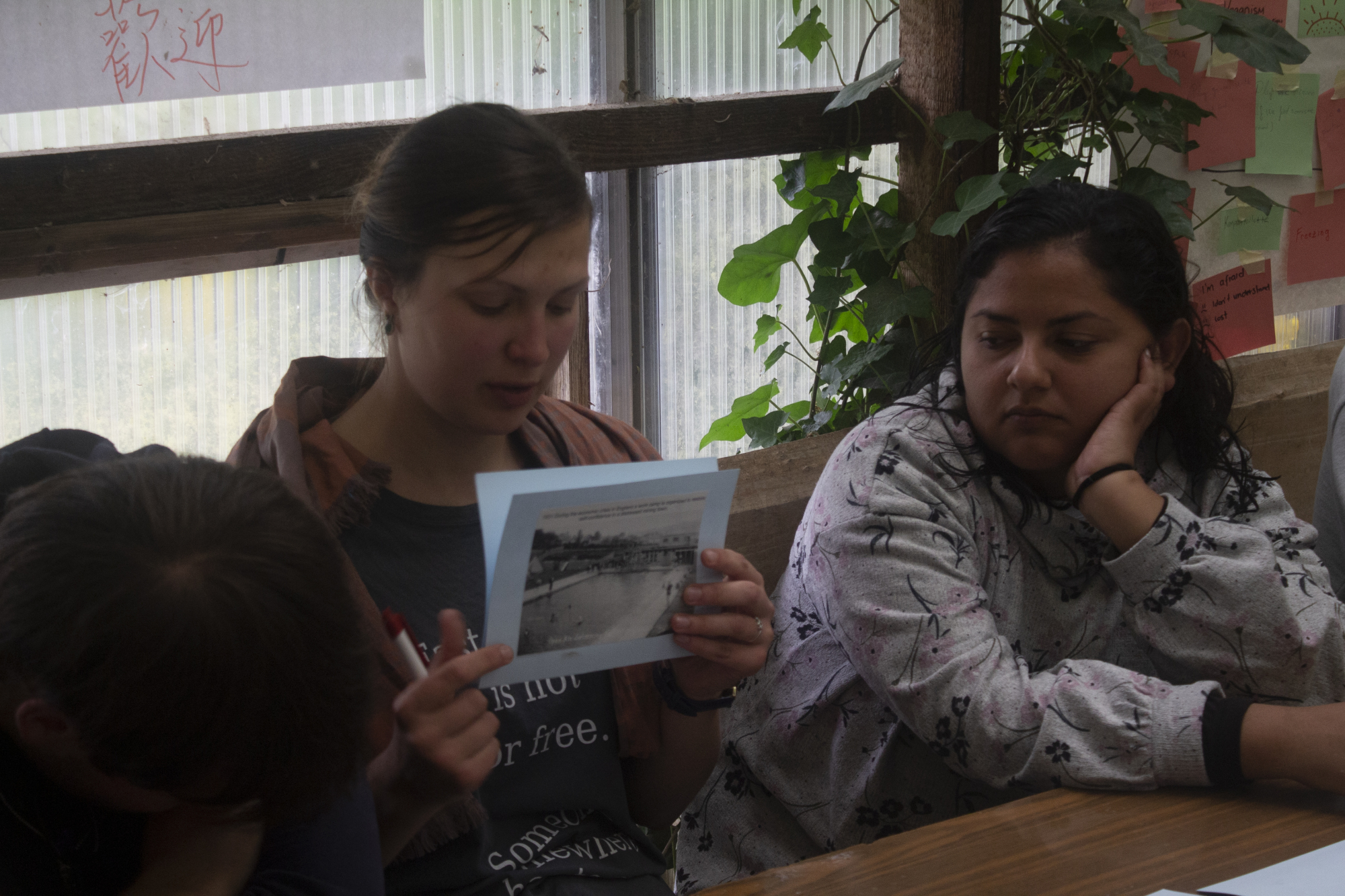
You can still join!
Want to have your own volunteer experience for peace?
Read more Voices of Volunteers

